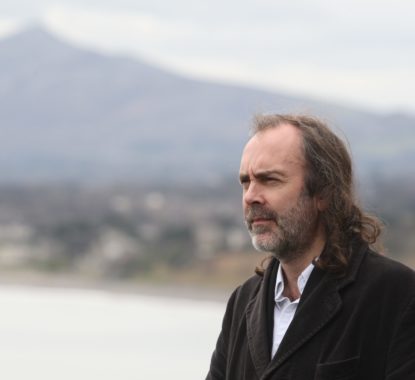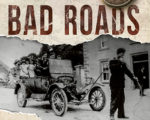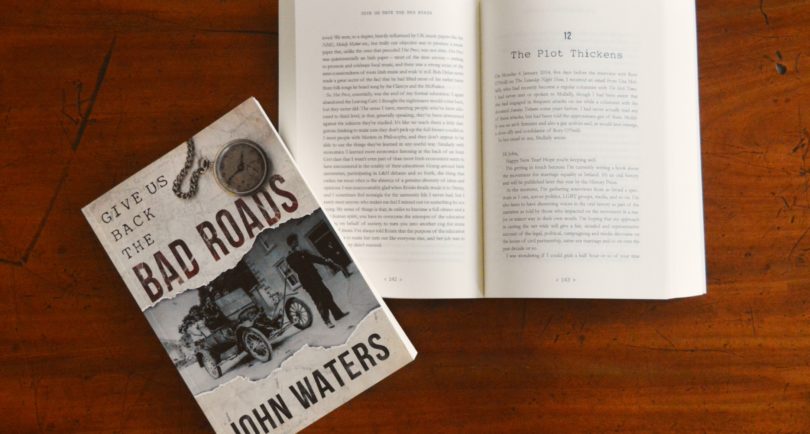
John Waters pictured at Killiney head, Dublin.
Mr Waters writes about his earlier love of rock’n’roll and how he became disillusioned with it in recent times, as he began to feel that something was horribly wrong, especially with the legalisation of abortion in Ireland. The rock stars of yesteryear used to be robust, rebellious, anti-hero ‘David’s’ rebelling against the oppressive ‘Goliath’ State (yes, many were also degenerates and their music corrupted youth). However, the contemporary wave of celebrity ‘musicians’ are virtue-signalling, new conformists in bed with the Establishment, gallantly acting as their propaganda proxy warriors while the country suffers serious social problems, especially in health, rental accommodation and public transport.
 And there is no doubt that John Waters has dealt with quite a lot of suffering during these modern-day Salem witch trials, culminating with a cancer diagnoses, of which he is currently struggling to recover from. But he never wears victimhood on his sleeve. Instead, he comes across as a kind, humble gentleman, highly educated and perceptive, with a sense of humour and lots of interesting things to say (see his Grand Torino youtube videos). He also comes across as a caring, and, at times, passionate person—passionate about his country and the forgotten, dispossessed Irish people whom he loves. But he doesn’t suffer fools gladly and is not over-sentimental about Ireland.
And there is no doubt that John Waters has dealt with quite a lot of suffering during these modern-day Salem witch trials, culminating with a cancer diagnoses, of which he is currently struggling to recover from. But he never wears victimhood on his sleeve. Instead, he comes across as a kind, humble gentleman, highly educated and perceptive, with a sense of humour and lots of interesting things to say (see his Grand Torino youtube videos). He also comes across as a caring, and, at times, passionate person—passionate about his country and the forgotten, dispossessed Irish people whom he loves. But he doesn’t suffer fools gladly and is not over-sentimental about Ireland. 
